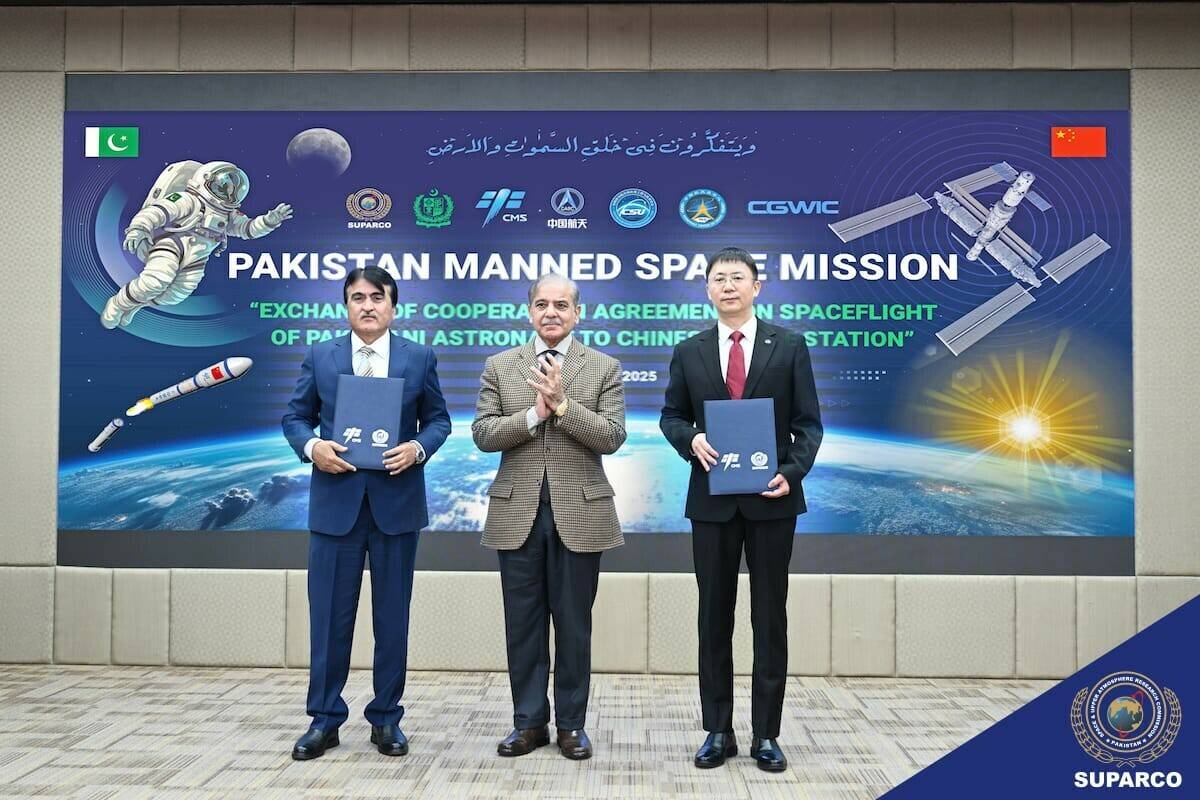Pakistan to send first astronaut to China’s Space Station Tiangong by 2026
Islamabad will also send a rover for China’s Chang’e-8 moon mission in 2028

ISLAMABAD: Pakistan is set to send its first astronaut into space, marking a major leap in its space programme under a partnership with China.
The agreement between the Space & Upper Atmosphere Research Commission (SUPARCO) and the China Manned Space Agency (CMSA) will see two Pakistani astronauts undergo training in China, with one selected for a 2026 mission aboard Tiangong, the Chinese space station.
This latest development positions Pakistan as the first country to send an astronaut to Tiangong, a significant milestone in the nation’s space journey. The selected astronaut will serve as a scientific payload specialist, conducting experiments in medical sciences, aerospace, physics, space radiation, ecology, and astronomy.
Pakistan’s space ties with China
Pakistan’s deepening space collaboration with China extends beyond human spaceflight. In 2023, Pakistan’s first lunar satellite, ICUBE-Q, was launched aboard China’s Chang’e-6 mission, reaching the moon’s orbit. Looking ahead, Pakistan is set to contribute a rover to China’s Chang’e-8 moon lander mission in 2028, reinforcing bilateral cooperation in space exploration.
China has been instrumental in supporting Pakistan’s space ambitions, with ongoing collaborations in satellite technology and research. The latest astronaut training programme will provide Pakistani scientists and engineers access to China’s advanced space infrastructure, potentially shaping Pakistan’s future independent space missions.
Expanding Spacefrontiers
Prime Minister Shehbaz Sharif hailed the initiative as a defining moment, highlighting Pakistan’s steady progress in space research and technology. Minister for Planning & Development Ahsan Iqbal also emphasised the programme’s role in advancing technological innovation and human spaceflight capabilities.
CMSA Director General Dr Lin Xiqiang welcomed Pakistan’s participation, while SUPARCO Chairman Mohammad Yousuf Khan described the collaboration as a milestone for Pakistan’s space industry. Experts believe that while Pakistan stands to gain from China’s technical expertise, it must also develop its own space capabilities to become a competitive player in the global space arena.
With the selection process underway, Pakistan moves closer to its first human spaceflight, marking a new chapter in its space exploration journey.